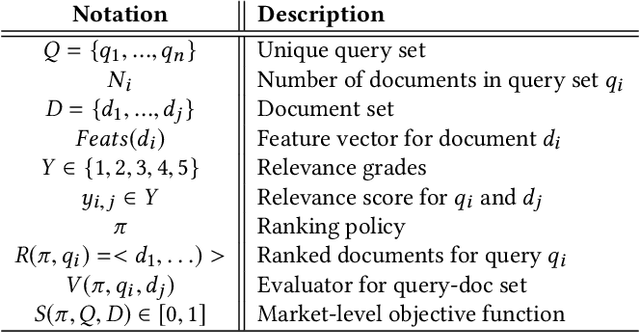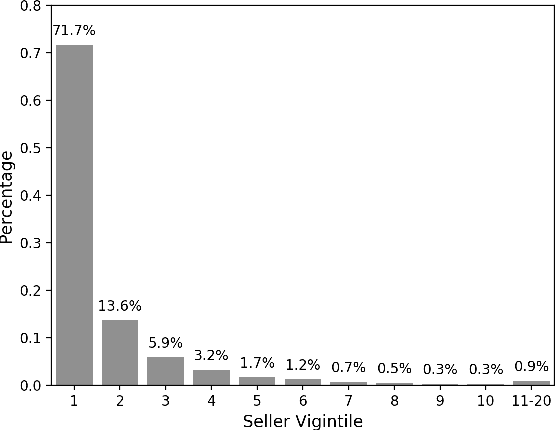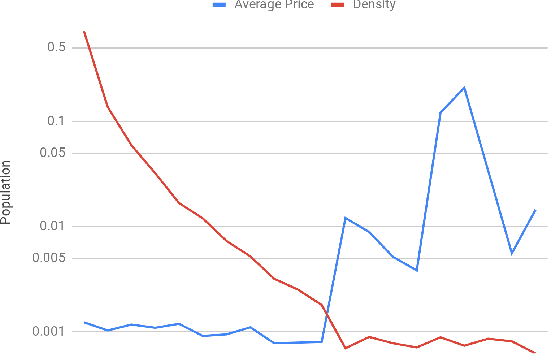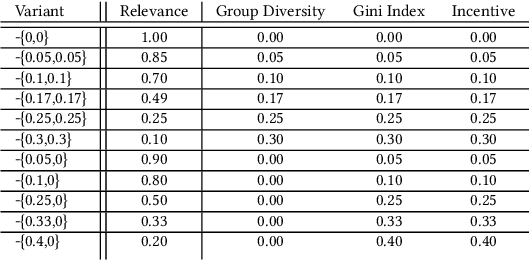Revenue, Relevance, Arbitrage and More: Joint Optimization Framework for Search Experiences in Two-Sided Marketplaces
Paper and Code
May 15, 2019



Two-sided marketplaces such as eBay, Etsy and Taobao have two distinct groups of customers: buyers who use the platform to seek the most relevant and interesting item to purchase and sellers who view the same platform as a tool to reach out to their audience and grow their business. Additionally, platforms have their own objectives ranging from growing both buyer and seller user bases to revenue maximization. It is not difficult to see that it would be challenging to obtain a globally favorable outcome for all parties. Taking the search experience as an example, any interventions are likely to impact either buyers or sellers unfairly to course correct for a greater perceived need. In this paper, we address how a company-aligned search experience can be provided with competing business metrics that E-commerce companies typically tackle. As far as we know, this is a pioneering work to consider multiple different aspects of business indicators in two-sided marketplaces to optimize a search experience. We demonstrate that many problems are difficult or impossible to decompose down to credit assigned scores on individual documents, rendering traditional methods inadequate. Instead, we express market-level metrics as constraints and discuss to what degree multiple potentially conflicting metrics can be tuned to business needs. We further explore the use of policy learners in the form of Evolutionary Strategies to jointly optimize both group-level and market-level metrics simultaneously, side-stepping traditional cascading methods and manual interventions. We empirically evaluate the effectiveness of the proposed method on Etsy data and demonstrate its potential with insights.
 Add to Chrome
Add to Chrome Add to Firefox
Add to Firefox Add to Edge
Add to Edge